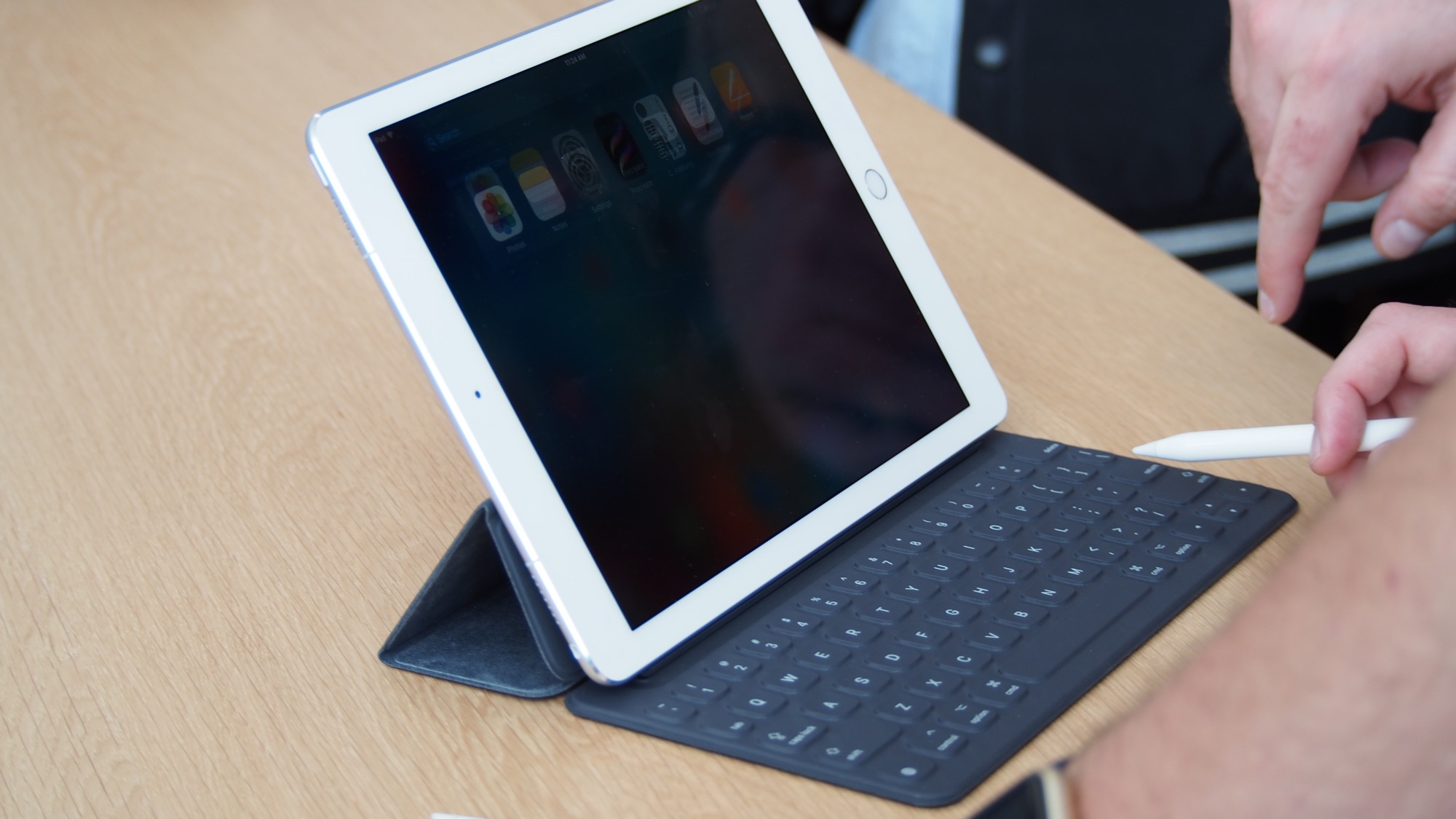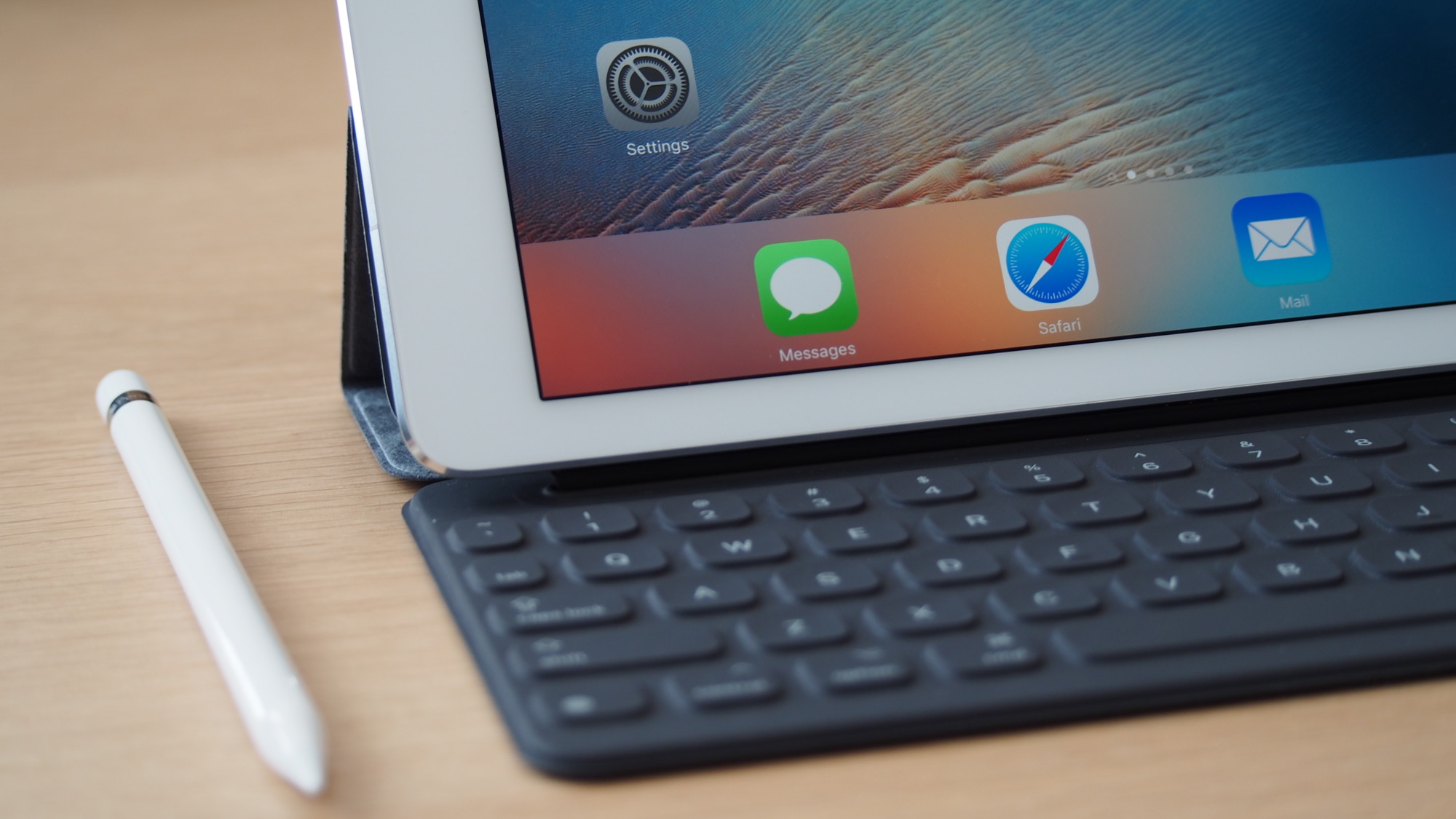Apple is gunning for Windows users, but can the iPad Pro tempt them?
Cupertino is repositioning its iPad in a major move

"This is an amazing statistic: there are over 600 million PCs that are over five years old in use today," said Phil Schiller, Apple's head of marketing, at the company's launch event on Monday. "This is really sad," he continued, to applause and laughter.
Schiller, one of Apple's most visible executives, had just made the case that the iPad Pro, the company's larger and more powerful tablet, was looking to attract old Windows users to Apple's platform. "We all know that Windows was conceived before there was an internet, before there was social media," he said, hinting at the perceived benefits of iOS, which was conceived 22 years after Windows first launched, well into the 'Web 2.0' era.
This rare mention of a competitor's product at an Apple event came with a purpose – the company is looking to reposition the iPad as a computer, with the features and upgrade cycle to match, that will eventually replace what many people consider to be a traditional PC today.
But Apple has been moving round to taking this angle for a while now. In an interview given around the time of the original iPad Pro's launch, Apple's CEO, Tim Cook, explicitly questioned why anyone would want a PC in 2016. "I think if you're looking at a PC," Cook said, referencing the iPad Pro, "Why would you buy a PC anymore? No really, why would you buy one?"

Repositioning the iPad
The repositioning of the iPad from a device Steve Jobs used while sitting in an armchair on stage to a powerful, capable computer moved another step forward when Apple unveiled the 9.7-inch version of the iPad Pro. It's unclear what will happen to the Air branding, but it doesn't look good going forward. Apple will still sell the iPad Air 2, but at a reduced cost.
"Many people will find the iPad is their ultimate PC replacement," continued Schiller, driving home a narrative that has been used by Microsoft with its Surface devices: tablets are the new PCs as internal components get thinner, lighter, and more powerful. In testing, the iPad Pro is about as powerful as a MacBook Pro from a few years ago and for most people that's enough.
The positioning isn't bulletproof, however. Apple said that 200 million '9.7-inch iPads' – i.e. iPads since 2010 – have been sold, which seems like a big number except it spans six years. In almost every year since 2010, the same number of laptops have been shipped. Tablets are set to grow over the coming years, but desktop and laptop sales will remain relatively unchanged.
Sign up to the TechRadar Pro newsletter to get all the top news, opinion, features and guidance your business needs to succeed!
The iPad has undoubtedly had an effect on the overall PC market, but its grip is far from firm. Apple has failed to drum up increased appetite for the iPad in recent years and sales have fallen as a result, peaking in 2013. Sales of 2-in-1 computers – a combination of a laptop and a tablet – have increased during the same period, however, but the company has been slow to react.
Max Slater-Robins has been writing about technology for nearly a decade at various outlets, covering the rise of the technology giants, trends in enterprise and SaaS companies, and much more besides. Originally from Suffolk, he currently lives in London and likes a good night out and walks in the countryside.